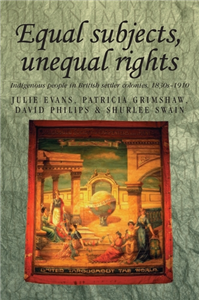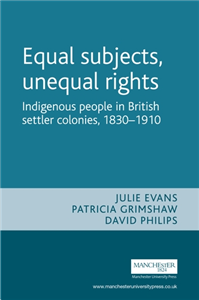Julia Margaret Cameron’s ‘fancy subjects’
Photographic allegories of Victorian identity and empire
by Jeff Rosen
The Victorians admired Julia Margaret Cameron for her evocative photographic portraits of eminent men like Tennyson, Carlyle and Darwin. However, Cameron also made numerous photographs that she called 'Fancy subjects', depicting scenes from literature, personifications from classical mythology, and Biblical parables from the Old and New Testament. This book is the first comprehensive study of these works, examining Cameron's use of historical allegories and popular iconography to embed moral, intellectual and political narratives in her photographs. A work of cultural history as much as art history, this book examines cartoons from Punch and line drawings from the Illustrated London News, cabinet photographs and autotype prints, textiles and wall paper, book illustrations and lithographs from period folios, all as a way to contextualise the allegorical subjects that Cameron represented, revealing connections between her 'Fancy subjects' and popular debates about such topics as Biblical interpretation, democratic government and colonial expansion. ;























